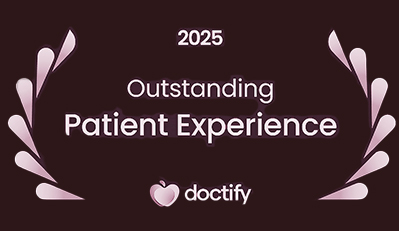
Is private cataract surgery safer than NHS?
When considering cataract surgery, one of the biggest questions people have is: Is private cataract surgery safer than the NHS?
It’s a fair question. Cataract surgery is a medical procedure, and safety matters. In this blog, we’ll look at how private care compares to NHS care, and whether one is actually safer than the other.
First, the good news
Cataract surgery—whether done privately or through the NHS—is one of the safest surgeries in the world. It has a high success rate and a low risk of complications. Millions of people safely undergo cataract surgery every year.
So the most important thing to know is this: Both NHS and private cataract surgery are generally very safe.
So what’s the difference?
The surgical technique used is largely the same. Both NHS and private surgeons follow the same standards for removing the cloudy natural lens and replacing it with a clear artificial one (an intraocular lens, or IOL).
But there are a few key differences that may influence your experience—and possibly your outcome.
1. Time and attention
In a private clinic, your consultation and surgery are usually longer and more personalised. You’ll meet your consultant in advance, have time to ask detailed questions, and get tailored advice.
This extra time can lead to better pre-operative planning, which plays a big role in safety.
2. Continuity of care
In many NHS settings, you may not meet the same doctor at each stage. Your consultation, scans, surgery and aftercare might involve different people.
In private care, you’re typically looked after by the same consultant surgeon throughout. This continuity can improve both safety and patient confidence.
3. Technology and diagnostic testing
Private clinics often invest in advanced imaging and diagnostic tools, which allow for more precise measurements and planning.
This level of detail can help select the most appropriate lens, reduce the risk of surprises during surgery, and potentially lead to better outcomes.
4. Choice of lens implants
While the NHS usually offers monofocal lenses (clear distance vision, but glasses still needed for reading), private patients can choose from a wider range of premium lenses:
- Multifocal or trifocal (see near and far)
- Toric (corrects astigmatism)
- EDOF (extended depth of focus).
The right lens can reduce your dependence on glasses—but also needs careful selection to avoid side effects like glare or halos. That’s where private consultations can give you the time and tools to get it right.
5. Waiting times and scheduling
Long NHS wait times may increase anxiety or allow cataracts to worsen before surgery is offered. In contrast, private patients are often seen within weeks.
Having surgery earlier may mean a smoother experience, as more advanced cataracts can increase surgical complexity.
6. Surgeon experience
Both NHS and private surgeons are well-trained—but in private practice, you often have the chance to choose your consultant and review their experience.
At Mitry Vision, your surgery is performed by Mr Danny Mitry, with a strong track record in cataract and lens surgery. That transparency and choice may offer additional reassurance.
Does private cataract surgery carry fewer risks?
The risk of complications like infection, inflammation, or posterior capsule opacification is low in both private and NHS settings.
But in private practice, greater pre-operative planning, time for discussion, and advanced diagnostics can reduce the likelihood of:
- Unpleasant visual side effects
- Dissatisfaction with lens outcomes
- Poor fit or incorrect lens strength
So while the overall safety is similar, the chance of a better experience and tailored care is often higher privately.
Should I be concerned about NHS safety?
No. NHS cataract surgery is safe and widely trusted. But some people want more choice, a shorter wait, or a more personalised experience. That’s where private care can shine.
Curious if private cataract surgery is right for you? Take our quick self-test today.
Find out if you are suitable for vision correction
Not everyone is eligible for vision correction surgery.
Find out if you could benefit from this life changing surgery by taking the quick self-suitability quiz below:




